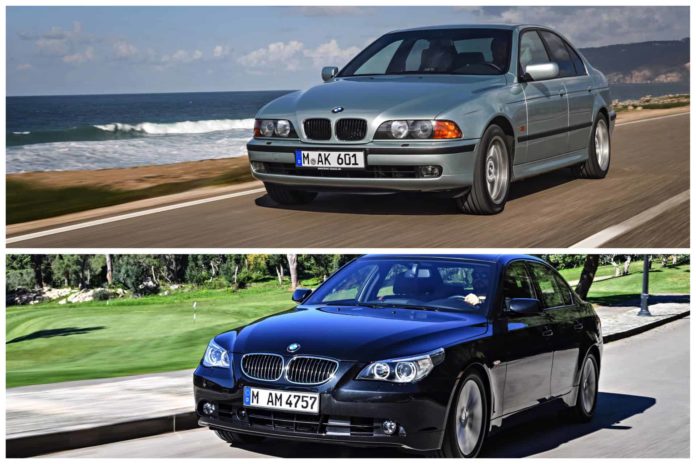“What have they done to it!?” was almost certainly my first reaction to the E60 5 Series upon launch in July 2003, twenty glorious years ago. As we’ve just been treated to another controversial new BMW – and a 5 Series – we can look back on the five of three generations back. Of course, as “experts” we knew the E60 would be a flop, ditto the E87 1 Series. But what do we know? I first saw the E60 5 Series via spy shots and like many, I thought they were computer-generated guesswork. No way could BMW replace the E39 with……that. But they did.
The E39 5 Series: A Well-Loved Car
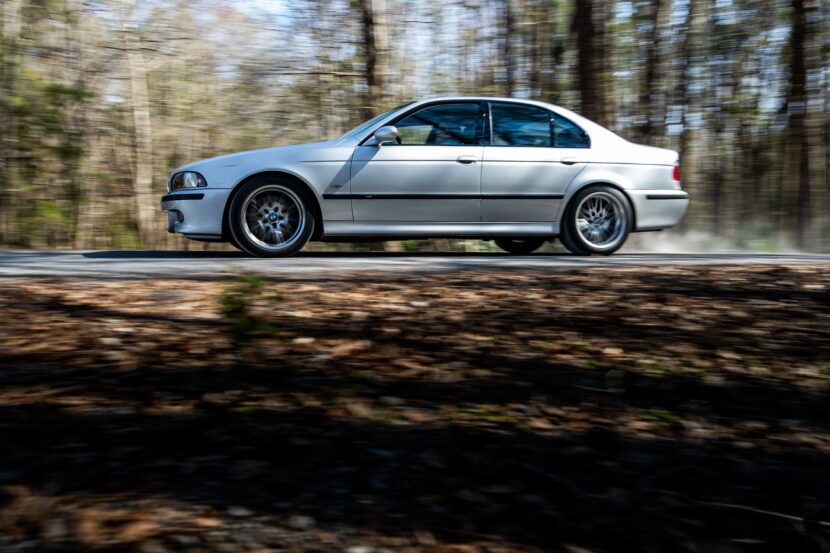
It’s worth talking about the E39 briefly here and how it led to the E60 5 Series. Well, it was a traditional BMW coming as it did after the very well-loved E34. The E39 BMW 520i was my go-to rental car in Germany between 2000 and 2003, some automatic, some manual, always silver for post Hertz resale value and all with cloth trim and steel wheels. We used to joke about this – like Ford made the Hertz Mustang 350H, BMW had their 520i in a standard rental spec.
But what a superb car it was. Sure, a BMW 525i would be better, a 540i even better, along with leather trim and the Harmon Kardon sound system. But in reality, the automatic BMW 520i was an excellent daily car and a fine place to be for that 300-mile non-stop trek. Even though it was the cheapest BMW 5 Series it still looked and felt like a quality item, an absolute, a bedrock.
The E60 5 Series: A Sales Success Despite Mixed Reviews
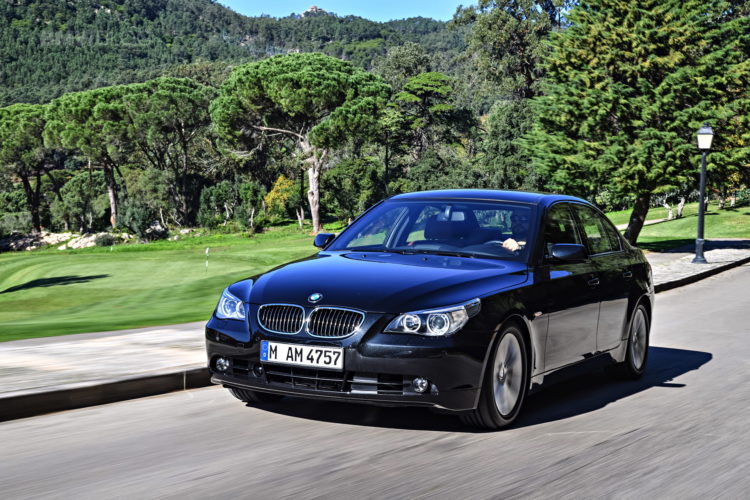
But there was a problem. Sales decided to take on a slow puncture after around 1999, especially in Germany. The E39 was a much nicer car than the bug-eyed W210 Mercedes-Benz E-Class or the Audi A6. Furthermore, in many respects, the E39 5 Series had no real competition – some thought it the best all-round car in the world and I have no argument with that. But hadn’t we seen it all before? The 1998 E46 BMW 3 Series was a mini-me version and upon 1996 launch many thought the E39 was a fatter, softened up version of the previous E34.
The E60 5 Series: A Departure from the Traditional BMW Look
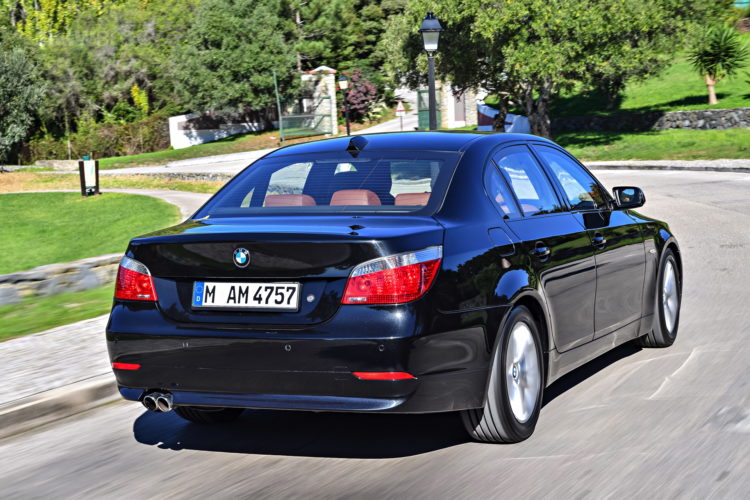
So, the E60 5 Series. Chris Bangle is often blamed for the styling which after twenty years still looks as divisive as it always did and distinctly gawky in non M Sport guise. But dated? Not a bit of it. In fact, it was the work of Davide Arcangeli – Bangle merely guided, encouraged and approved. Those early base model cars with 16-inch wheels looked ridiculous at the time. Additionally, they highlighted the plain slab sides, the almost Z3-esque front end (compare the two) and the back end that looked like an E39 after a stretch and tuck facelift. Worse was to come when you sat inside the car. All those years of honing BMW facias and instruments to logical perfection, all gone. Now you had iDrive, a big slab of a dash top, oddly angled window switches and a general finish not unlike something GM was making back then although undoubtedly solid and well built.
Is this really a BMW?
The E39: Is It Still a Good Car Today?
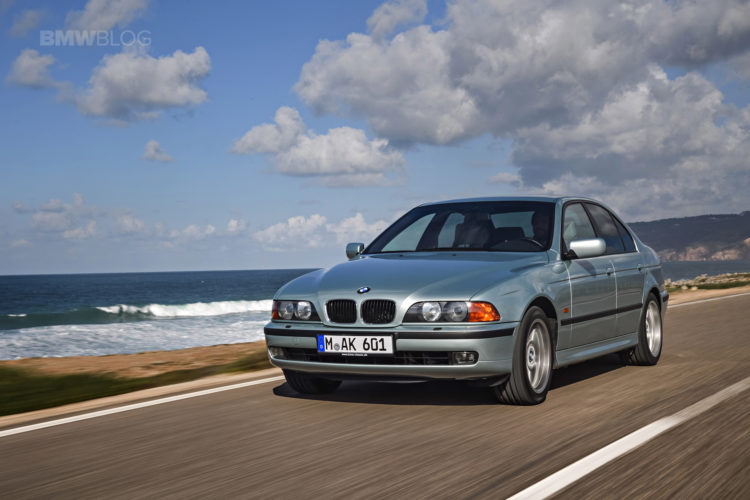
Well, 20 years later I have to say that they were right after all. E39 5 Series models are feted as modern classics but to me they are just the 5 Series before the E60. They came, they went and that was that. Very nice cars and all that, but is ‘nice’ what we want? Add to those subjective gut feelings the failings of the E39 in old age – sill and jacking point rust, failed dash pixels, ABS module failure, cooling system meltdowns, etc., and I’ll pass, thanks. A manual BMW 540i or the wonderful M5 are exceptions, but how many of those are there? For me, E39 models are too needy in old age and not exciting enough to warrant fixing every other weekend.
The E60’s Design: Love It or Hate It?
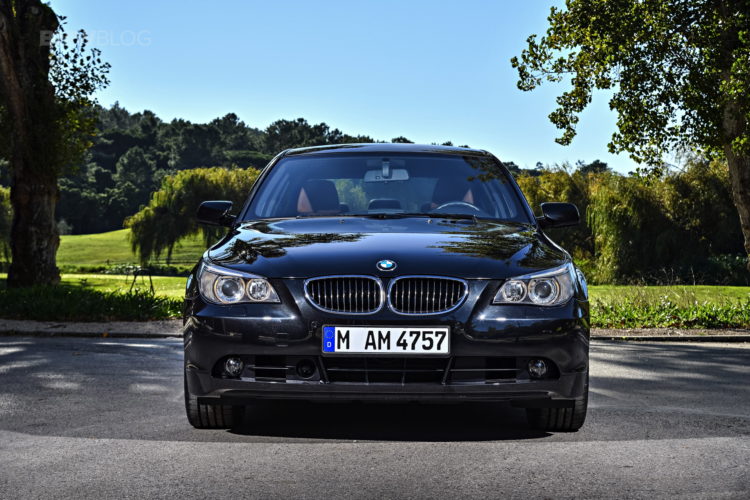
Get past the iDrive, and you’ll find a car that really is special. The front end, including the inner structure and frame, is all aluminum. The suspension was all basically E39 design but subtly revised, and at last, the steering box of the V8 E39 was replaced by a rack and pinion. And with the E65 and E60, plus the Z4, BMW finally conquered body rust, and even now, you will struggle to find a 2003 E60 5 Series with anything other than minor neglect rust.
The E60 isn’t perfect, of course. It has its own old age dramas – V8 valve stem seals, Servotronic steering woes, and so on. But once you replace those horrid concrete run-flat tires with some proper boots, there is no doubt that it’s a fine car to drive. As much as I liked the later F10 to look at, there’s no doubt in my mind that the E60 drives better and is more of a BMW.
The E60’s Legacy: What Will It Be Remembered For?
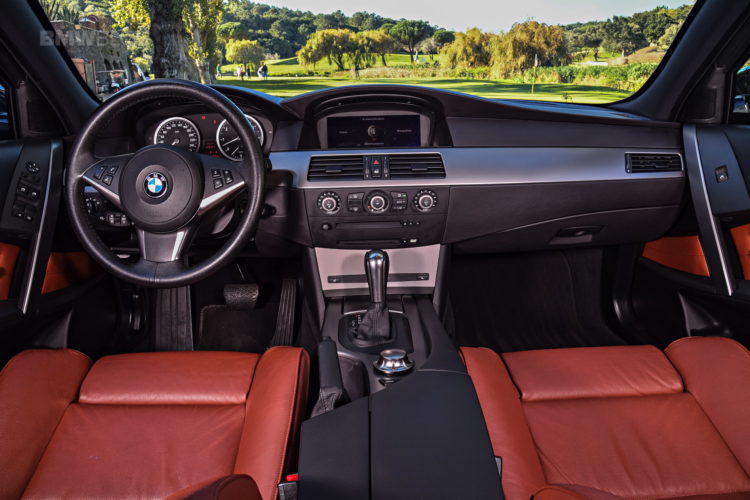
Twenty years ago, BMW knew they had to get away from the middle-aged executive image that they were gradually acquiring, sharpen their tools, and lower the average age of BMW ownership. The 2001 E65 was the first faltering step, but the E60 really nailed it down. Did sales increase though? Well, in a nine-year life (Tourings left the building in ’04), the E39 sold 1,488,038 units, and the E60 had sold 1,369,817 examples over seven years by the time the last Tourings were built in July 2010. Not a massive difference year over year, but enough to prove a point. The E60 also had a slow start as Ye Faithful BMW buyers of old got to grips with it.
On July 5th this year, you can either raise a glass to the E60 or give your E39 a knowing pat on the roof, depending on your point of view. Me? I might just go and buy myself another E60, but a post-’07 pre-facelift model, thanks.

